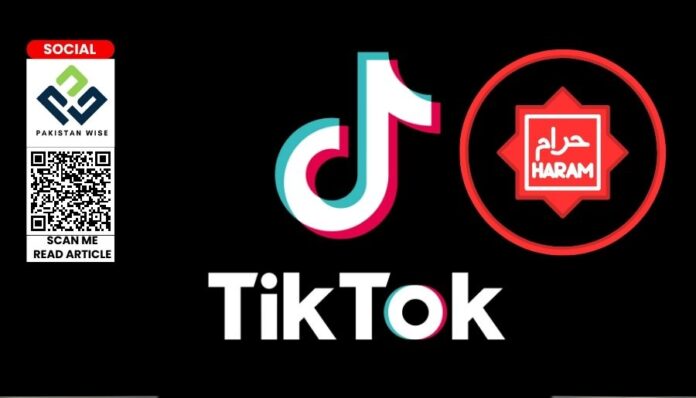Religious Leaders Condemn TikTok: Cultural Clash
The mix of tech, culture, and religion often leads to arguments. TikTok, a huge social media hit worldwide, has been criticized by religious leaders at Jamia Binoria Town in Karachi. They firmly declared TikTok as “Haraam” or forbidden, sparking debates about its content, impact on culture, and moral values. This article explores the details of this religious ruling, looking into how TikTok affects society’s rules and the bigger effects of its content
Religious Leaders’ Verdict:
The Ruling Leaders at Jamia Binoria Town strongly state that TikTok goes against Islamic principles. They criticize the platform for sharing images, videos, and music deemed forbidden, raising worries about moral decline among different ages. They focus on how TikTok breaks Sharia principles, especially in activities like photography and filming that clash with religious guidelines.
The ruling condemns TikTok’s content for spreading inappropriate videos and actions contradicting Islamic teachings. It criticizes features such as music, singing, and dancing for promoting indecency and nudity. Additionally, mocking religious figures on TikTok is strongly condemned in the ruling, highlighting how the platform encourages frivolous behavior.
Moving Beyond Religion:
Concerns About Culture and Morals Although the religious ruling focuses on Islamic principles, it extends to wider moral and cultural concerns related to TikTok. The platform’s worldwide reach and its effect on how society behaves have raised worries about its influence on cultural values. This isn’t just about religion but also about discussing the ethical effects of TikTok’s content.
TikTok’s Worldwide Attention and Pakistan’s Situation
In Pakistan’s diverse social and cultural scene, there have been intense talks and legal steps taken regarding TikTok. Even after bans and legal actions, Sensor Tower’s 2022 data showed a huge 39 million downloads in the country. This high user influx despite restrictions highlights TikTok’s popularity and brings up important questions about how it fits into society.
Striking a Balance: Assessing TikTok’s Suitability
The conflict between freedom of expression and cultural or religious values highlights the necessity for a careful assessment of TikTok. Though the platform encourages creativity and self-expression, conflicts arise when these expressions clash with established cultural or religious beliefs.
The clash between technological advancements and cultural/religious values continues to raise pertinent questions about the ethical and moral implications of social media platforms like TikTok. The intersection of diverse perspectives underscores the need for comprehensive discussions and considerations to navigate this complex terrain effectively.
TikTok’s Impact in Pakistan
| Year | Total Downloads (in millions) |
|---|---|
| 2020 | 25 |
| 2021 | 31 |
| 2022 | 39 |
Conclusion
The proclamation by religious leaders at Jamia Binoria Town marks a pivotal moment in the ongoing discourse surrounding TikTok’s cultural impact. Beyond religious convictions, it sheds light on the complex interplay between technology, cultural values, and societal norms. As debates persist, navigating the delicate balance between freedom of expression and respecting cultural sensitivities remains imperative in shaping the future landscape of social media.

